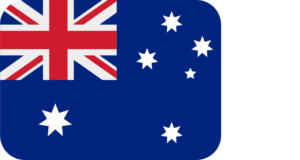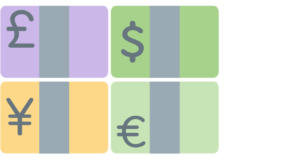Markets were volatile in August. However, Developed Market equity returns were positive for the month overall. The MSCI World ex-Australia Index (Hedged) rose by 1.8% over the month.
At the start of August, volatility jumped to levels we haven’t seen since the Covid-19 pandemic period. This was mainly linked to stress in Japanese currency and equity markets, and with concerns of a weakening US economic outlook. By the end of the month however, most major Developed Markets had recovered and were generally positive.

USA
The US equity market broadly outperformed Developed Markets. The S&P 500 was up 2.4%. The US Federal Reserve Chair, Jerome Powell, said that interest rates would soon ease, due to moderating inflation. Expectations for this easing in interest rates, and other economic data showing resilience in economic activity, supported the bounce-back in equity markets.

Europe
The MSCI Europe Index was stronger in August, with positive returns across all major European markets. Euro Area inflation softened further in August, falling to 2.2% (from 2.6% in July). Some data has highlighted the potential for some resilience in Euro Area economic activity.

Asia
In Asia, the Bank of Japan raised interest rates. This contributed to a stronger Yen. This, and concerns about global economic growth, led to the rapid unwind of some popular currency and equity trades. In early August, Japanese equities fell more than 12% in a single day and volatility spread across the world. However, by the end of the month, Japanese equities had recovered somewhat to return -2.7% for the month.
Elsewhere in Asia, Chinese equities were moderately positive, returning 0.6%.

Australia
The Australian equity market returned 0.4% for August, underperforming Developed Markets The Information Technology sector significantly outperformed all other sectors in August. The IT Sector returned 7.2%. At the other end of the scale, the Energy sector underperformed, returning -6.2%.
The Reserve Bank of Australia kept the cash rate at 4.35%. The RBA said that even though domestic economic activity has been weak, inflation is persistent and it is taking longer than planned to return to target inflation levels.

Currency and bonds
Bond yields were materially lower in early August. This was caused by worries that weaker US employment data may lead to swifter rate cuts by the US Federal Reserve. By the end of August, this had mostly corrected. The US 10-year government bond fell 14 basis points to 3.92%. The Australian 10-year government bond yield fell 15 basis points to 3.97%.
The Australian dollar rose against many currencies:
- US Dollar, up by 3.9%
- Euro . up by 1.6%P
- Pound Sterling, up by 1.5%
- Japanese Yen, up by 0.6%
The US Dollar was generally weaker against the currencies of most major trading partners.

